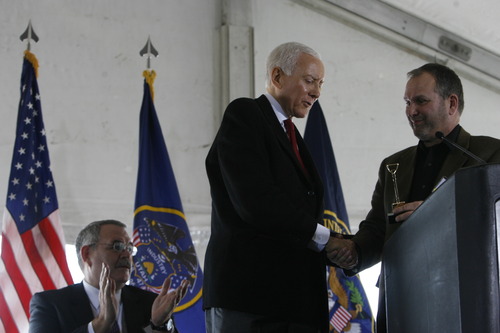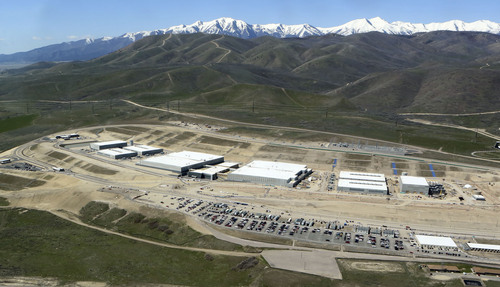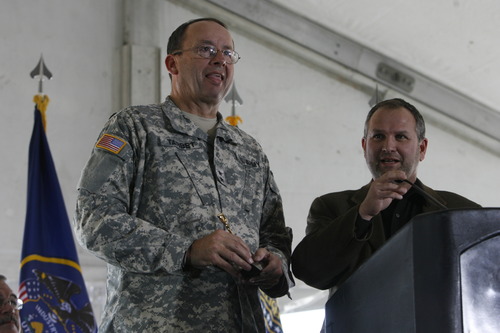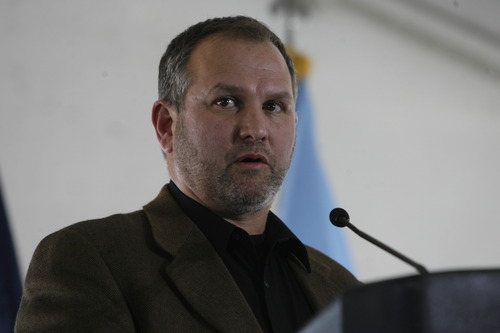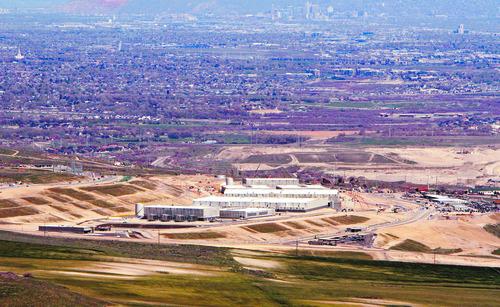This is an archived article that was published on sltrib.com in 2013, and information in the article may be outdated. It is provided only for personal research purposes and may not be reprinted.
Washington • Changes suggested by a panel reviewing the National Security Agency's domestic and foreign spying — some of them sweeping — aren't likely to impact the massive data center in Utah, experts say.
While the panel's recommendations to President Barack Obama, if adopted, could reverse some of the agency's domestic-focused intelligence gathering, the new data center in Bluffdale is still expected to house vast amounts of data as planned.
Among the changes endorsed is that phone carriers should store call information — called "telephony metadata" — themselves rather than turning it all over to the NSA, and that court approval be required for individual searches of phone records. Currently the government is collecting and storing vast amounts of such data without court approval, using the broad authority of so-called national security letters.
"The current storage by the government of bulk meta-data creates potential risks to public trust, personal privacy and civil liberty," the panel wrote in its 304-page report. "We recognize that the government might need access to such meta-data, which should be held instead by private providers or by a private third party."
The panel recommended tightening standards for the Foreign Intelligence Surveillance Court and for national security letters to obtain otherwise private information on individuals, suggesting the government should be required to show it has "reasonable grounds to believe that the particular information sought is relevant to an authorized investigation intended to protect 'against international terrorism or clandestine intelligence activities' and, like a subpoena, the order is reasonable in focus, scope and breadth."
The president plans to review the proposals over the next few weeks, the White House said Wednesday. Even if enacted, though, the computer center at the Point of the Mountain will still be humming along.
"The bulk of the material will still be coming in," says James Bamford, an author who has written extensively about the NSA. "You're only talking about a small amount of material when you're intercepting telephone numbers and so forth. ... I don't think they'll be any changes for Bluffdale because of that."
—
Public suspicion • The review panel's suggestions come at a time of dwindling confidence in the NSA after revelations by former contractor Edward Snowden brought to light how deeply the intelligence agency had penetrated both domestic and international communications. Documents unveiled by Snowden prompted the government to acknowledge it was collecting data on phone calls placed or received by Americans but not the content of those calls.
A federal judge this week ruled the collection of that information unconstitutional but stayed his order pending an inevitable appeal.
Beyond the metadata item, the review panel — which included former intelligence officials and outside experts — also suggests moving the NSA's cyber defense mission to a separate entity in the Department of Defense and ensuring that the NSA treat its allies with a "high degree of respect." The latter referred to blowback from America's closest international partners who were livid over reports of U.S. eavesdropping in their countries.
In the unlikely event Obama were to adopt all of the panel's 46 recommendations, the NSA would have to obtain an order from the secret Foreign Intelligence Surveillance Court for each phone number it wanted to seek data about.
—
Utah center • It's unclear if the Utah Data Center, located on the Utah National Guard's Camp Williams, is actually up and running. The Wall Street Journal previously reported electrical problems at the center had held up operations but the NSA said in a document obtained by The Salt Lake Tribune that the issues were minor and had not delayed the project.
Agency officials told The Tribune earlier this year that the data center is essentially a backup storage site that is networked in with the NSA's other computer operations, and will employ only 200 people as technicians, not analysts.
Bamford, the NSA chronicler, says that while the controversial metadata collection has riled up Americans, that information isn't a big part of what the data center will house.
"It's just a bunch of numbers. It's a lot of numbers, but it's just numbers," he said. "You're not storing any text, any data."
Pete Ashdown, founder of Internet service provider, Xmission, agrees.
"When you're talking about them intercepting Internet traffic and all the emails that are sent over a connection, the metadata is miniscule in comparison," Ashdown said. "It's not even a couple servers; it's what you could store on your laptop."
The Associated Press contributed to this report.


